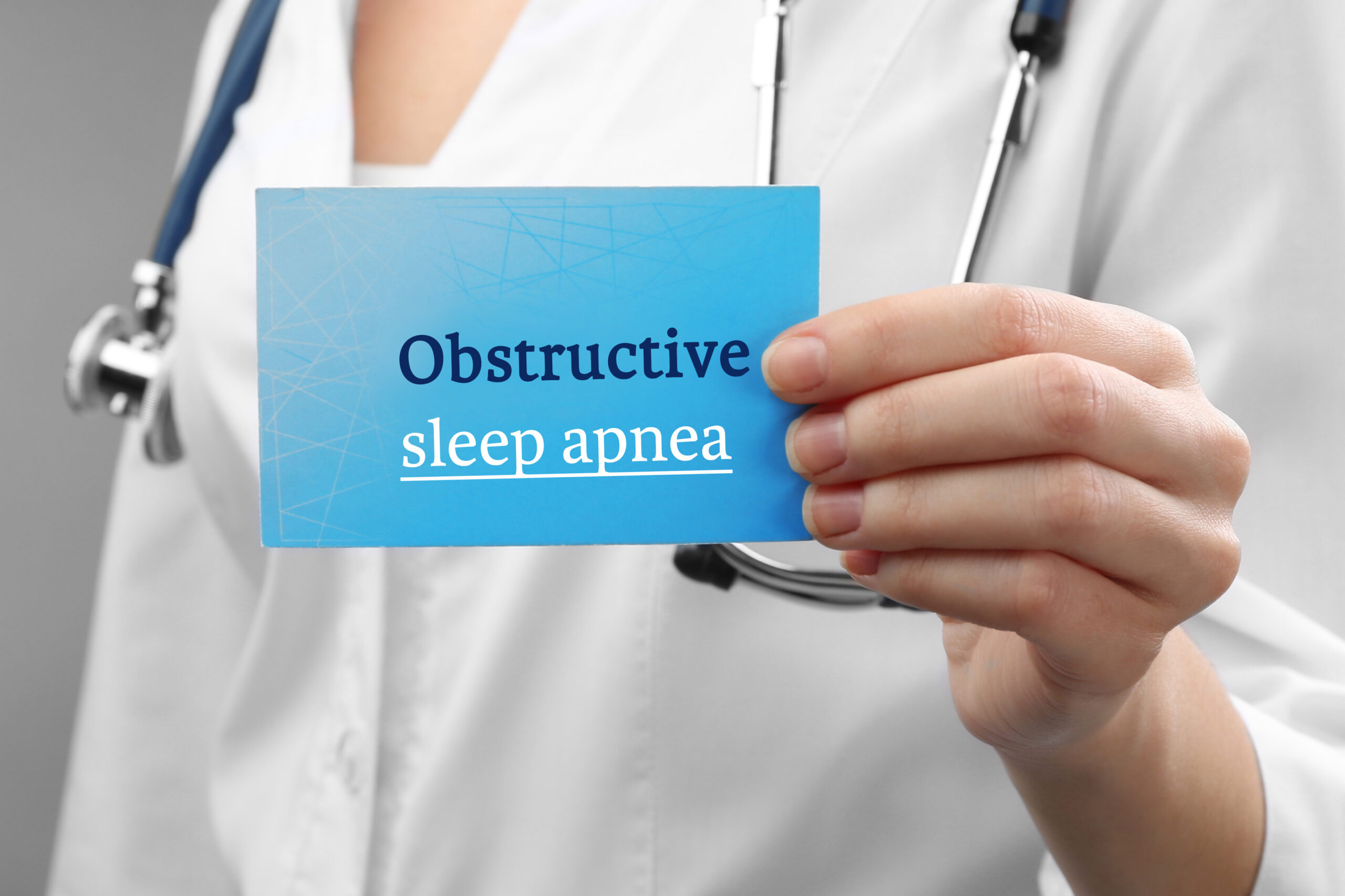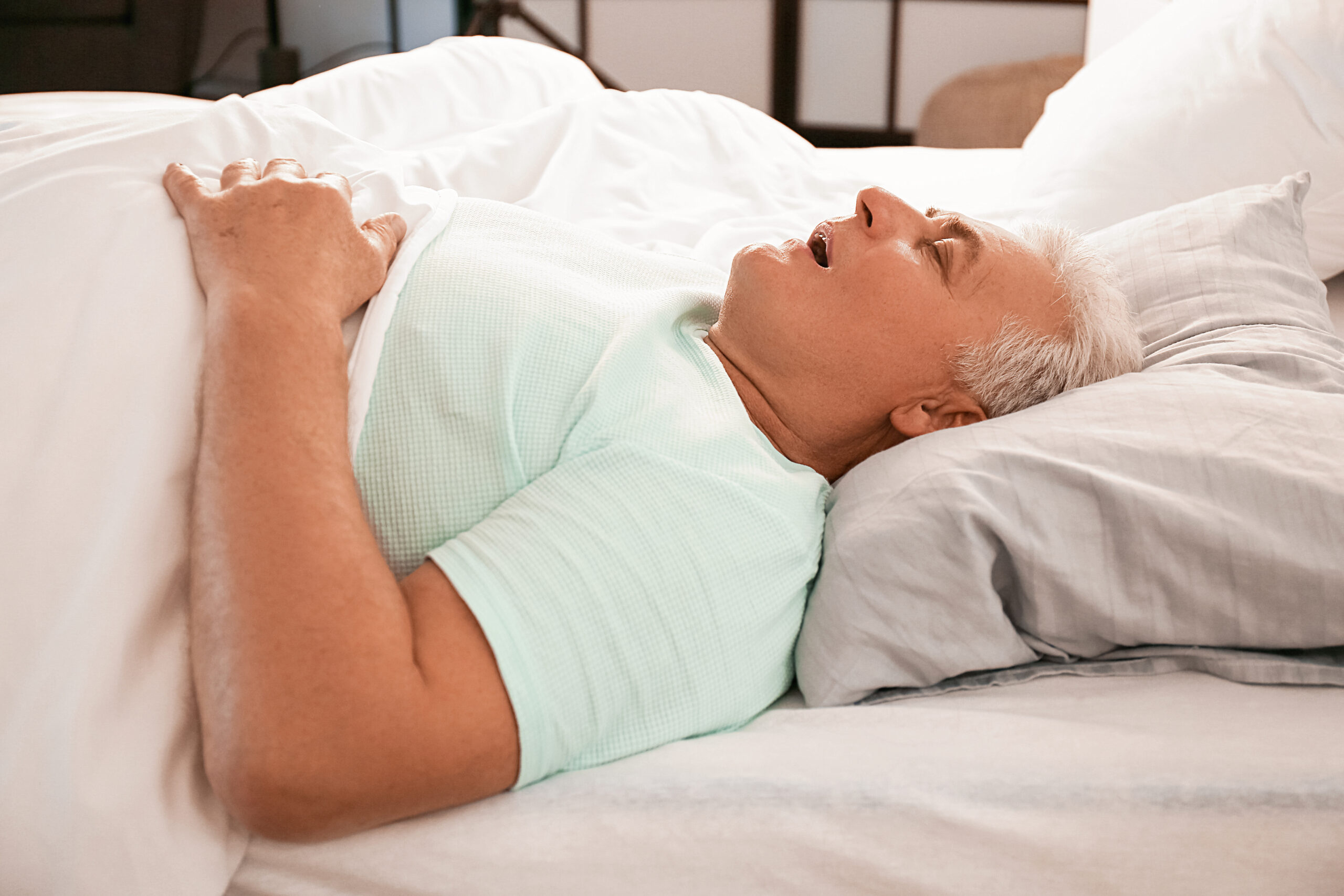Orthodontic Treatment For Sleep Apnea
Sleep Apnea is a sleeping disorder that can have serious health consequences. It usually occurs when your breathing stops and starts while you are asleep. This is caused by your airways being blocked, and there are a few causes for that.
Orthodontics and Sleep Apnea

There are different designations of sleep apnea, but the one that an orthodontist can help with is called obstructive sleep apnea. This is when the airways get repeatedly blocked while you are asleep, causing short periods of time where you aren’t really breathing. Not only is this dangerous, but it limits oxygen to vital organs and can negatively affect the quality of your sleep.
If you believe you have obstructive sleep apnea, let your orthodontist know. Although an orthodontist cannot directly diagnose sleep apnea on their own, they can be some of the first to see early signs of it during regular orthodontic treatment. Sleep apnea can be caused by numerous different factors, so working together with your healthcare team is vital.
When it comes to obstructive sleep apnea, orthodontic treatment can be used to alleviate symptoms. Often times, this type of sleep apnea is caused by misalignments in the mouth causing your airway to be blocked. By changing the alignment, this issue can go away.
Get An Obstructive Sleep Apnea Exam In Fort Worth Today
Ahava Orthodontics is always welcoming new patients to give them great smiles and happy lives. Any form of sleep apnea can have negative effects, so we are happy to perform an examination for obstructive sleep apnea for our patients in Fort Worth.
Getting started is easy. Simply contact our office to get your new patient exam scheduled and we’ll have you on the path to a great smile in no time!
Orthodontic Treatment For Sleep Apnea
In most cases, your orthodontist will work together with your primary healthcare physician to determine the best course of treatment. There are a few non-surgical methods that orthodontics can utilize to help to treat obstructive sleep apnea.
One of these methods is changing the alignment of your teeth and jaw structure. For example, having a misaligned bite can cause your tongue to be in a position to block your airway at night. Fixing the alignment of your teeth and jaw structure can help to ensure that you have a great uninterrupted sleep.
In some cases, your orthodontist may suggest wearing an orthodontic appliance at night to manually ensure that your airways remain open so that you can breathe. These appliances keep your jaw in a properly aligned position for sleeping.
In other cases, surgery may be required to treat your obstructive sleep apnea. The type of surgery you require varies from person to person and is determined by the primary cause of your sleep apnea.


Side Effects Of Sleep Apnea
Sleep apnea, in any form, can have serious side effects. The side effects from obstructive sleep apnea can go far beyond simple discomfort. These side effects include, but aren’t limited to:
- Snoring, gasping, and/or choking while sleeping
- Morning headaches
- Changes in mood
- Increased difficulty maintaining attention and focus
- Excessive fatigue or tiredness during the day
For long-term, untreated obstructive sleep apnea, you also put yourself at a much higher risk for:
- Cardiovascular problems
- Metabolic syndrome disorders
- Premature death

